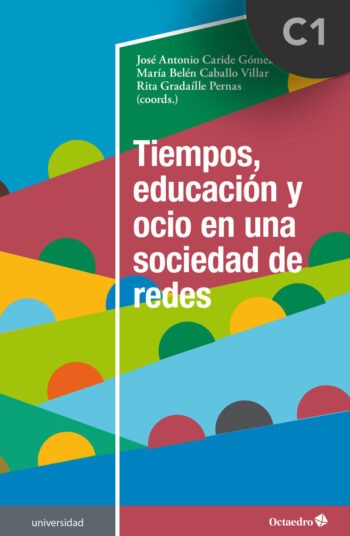Referencias bibliográficas
- Adam, B. (1990). Time and social theory. Oxford: Oxford University Press.
- Adams, V., Murphy, M. y Clarke, A. (2009). Anticipation: technoscience, life, affect, temporality. Subjectivity, 28(1), 246-265.
- Albuquerque, C. P. (2016). Time and public policy. Desynchronization of lifecycle and outlines of a contemporary «biopolitics». Time & Society, 25(2), 253-271.
- Appadurai, A. (2013). The future as a cultural fact. Essays on the global condition. Londres: Verso.
- Araújo, E. (2018). Para uma perspetiva aplicada do tempo. Revista de Estudios Sociales, 65, 63-72.
- Assier-Andrieu, L., Bessin, M. y Perrin, J. F. (2000). Ost, François, Le temps du droit. Droit et Société, 46, 659-678.
- Bergmann, W. (1992). Time and social theory: towards a social theory of time. Time & Society, 1, 421-454.
- Bourdieu, P. (1964). La société traditionnelle – Attitude à l’égard du temps et conduite economique. Sociologie du Travail, 1, 24-44.
— (2008). A miseria do mundo. Petrópolis: Vozes.
- Castree, N. (2009). The spatio-temporality of capitalism. Time & Society, 18(1), 26-61.
- Corbin, A. (2001). História dos tempos livres: o advento do lazer. Lisboa: Teorema.
- Coriat, B. (1979). L’atelier et le chronomètre: essai sur le taylorisme, le fordisme et la production de masse. París: Christian Bourgois.
- Dubar, C. (2004). Régimes de temporalité et mutation des temps sociaux, Temporalités, 1, 118-129.
- Durkheim, E. (1979). Les formes élémentaires de la vie religieuse: le système totémique en Australie. París: Presses Universitaires de France.
- Elias, N. (1997). Du temps. París: Fayard.
- Evans-Pritchard, E. E. (1940). The Nuer: A Description of the Modes of Livelihood and Political Institutions of a Nilotic People. Oxford: Clarendon Press. https://archive.org/stream/nuerdescriptiono00evan#page/96/mode/2up.
- Fuchs, C. (2015). Culture and Economy in the age of Social Media. Nueva York: Routledge.
- Gell, A. (2014). Antropologia do tempo. Río de Janeiro: Vozes.
- Grossin, W. (1996). Pour une science des temps. Introduction à l’écologie temporelle. París: Octarès.
- Harvey, D. (2002). Condição pós-moderna: uma pesquisa sobre as origens da mudança cultural. São Paulo: Loyola.
- Hassan, R. (2011). The Age of Distraction: Reading, Writing, and Politics in a High-Speed Networked Economy. Londres: Transaction Publishers.
- Held, M. y Nutzinger, H. (1998). The Nonstop Society Nonstop Acceleration: The Economic Logic of Development towards the non stop society. Time Society, 7(2), 209-221.
- Hörning, K. H., Ahrens, D. y Gerhard, A. (1999). Do technologies have time? New practices of time and the transformation of communication technologies. Time & Society, 8(2-3), 293-308.
- Hubert, H. y Mauss, M. (1905). Étude sommaire de la représentation du temps dans la religion et la magie. http://classiques.uqac.ca/classiques/mauss_marcel/melanges_hist_religions/t4_temps/temps.html.
- LaGro, E. (2007). The Temporality of Enlargement: Comparing East Central Europe and Turkey. http://www.unc.edu/euce/eusa2007/papers/lagro-e-04h.pdf.
- Martins, H. (1998). Technology, modernity, politics. En: Good, J. y Velody, I. (eds.). The politics of Postmodernity (pp. 152-18). Cambridge: Cambridge University Press.
- Marx, K. (1971). O capital: crítica da economia política. Río de Janeiro: Civilização Brasileira.
Perista, H., Cardoso, A., Brázia, A., Abrantes, M. y Perista, P. (2016). Os Usos do Tempo de Homens e de Mulheres em Portugal. http://www.cite.gov.pt/asstscite/downloads/publics/INUT_livro_digital.pdf.
- Pritchard, E. (1940). The Nuer. Oxford: Claderon Press. https://archive.org/stream/nuerdescriptiono00evan#page/96/mode/2up.
- Ramos, R. (2009). Metáforas del tiempo en la vida cuotidiana. Acta Sociologica, 49, 51-69.
- Rosa, H. (2015). Social acceleration-a new theory of modernity. Nueva York: Columbia University Press.
- Roth, J. (1963). Timetables: Structuring the passage of time in Hospital treatment and other careers. EE. UU.: Library of Congress.
- Shwartz, B. (1979). Waiting, exchange and power: the distribution of time in social Systems. American Journal of Sociology, 79, 841-70.
- Simmel, G. (1987). Philosophie de l’argent. París: Presses Universitaires de France.
- Sorokin, P. y Merton, R. (1937). Social Time: a methodological and functional analysis. American Journal of Sociology, 42,615-639.
- Sue, R. (1995). Temps et ordre social: sociologie des temps sociaux. París: Presses Universitaires de France.
- Sugarman, J. (2015). Neoliberalism and Psychological Ethic. Journal of Theoretical and Philosophical Psychology, 35, 2, 103-116.
- Thompson, E. P. (1967). Time, work-discipline and industrial capitalism. Past & Present 38(1), 56-97.
- Thrift, N. (1990). The making of a capitalist time conscienciousness. En: Hassard, J. (ed.). The Sociology of Time (pp. 105-129). Londres: MacMillan.
- Veblen, T. (2014). Teoría de la clase ociosa. Madrid: Alianza.
- Wajcman, J. (2017). Pressed for time: The acceleration of life in digital capitalism. Chicago: University of Chicago Press.
- Zerubavel, E. (1985). The seven day circle: the history and the meaning of the week. Chicago: University of Chicago Press.











